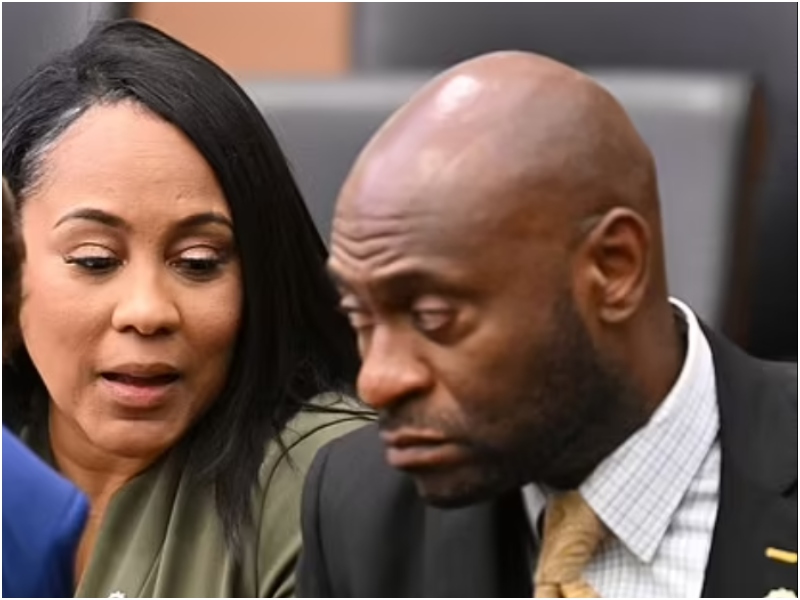In a recent development, Fulton County District Attorney Fani Willis and special prosecutor Nathan Wade publicly admitted to having a “personal relationship.”
The revelation has fueled calls for their disqualification from the election case against former President Donald Trump and his co-defendants.
The acknowledgment surfaced in response to conflict of interest claims, with Willis dismissing them as “salacious” and made “in bad faith.”
The co-defendants, including Mike Roman, allege an improper relationship between the prosecutors, suggesting financial benefits from the arrangement.
This disclosure adds a layer of complexity to the already high-stakes prosecution, accusing Trump and his allies of a conspiracy to overturn Georgia’s 2020 election results. The accusations could potentially undermine the legal proceedings.
Trump seized on the admission, taking to Truth Social to suggest that Willis pursued high-profile targets to benefit her alleged “lover” financially. The former president’s involvement intensifies the political drama surrounding the case.
In her filing, Willis staunchly defended against disqualification, arguing that the claims failed to meet the threshold under Georgia state law. She urged Judge Scott McAfee, overseeing the case, to reject the defendants’ attempts to remove her.
The judge has scheduled a crucial hearing on February 15, where the validity of these claims will be addressed. If successful, it could significantly impact Willis’s case against Trump and his co-defendants.
Nathan Wade, the outside prosecutor appointed by Willis in 2021, also issued an affidavit denying that his compensation for working on the case was shared with Willis. He clarified that they never cohabitated, shared household expenses, or had a joint account. Wade explained that personal travel expenses were evenly divided, funded from their individual accounts.
The revelations unfold in tandem with Wade’s divorce proceedings, where his ex-wife, Joycelyn Wade, had filed a subpoena for Willis to testify. The Wades settled their divorce on January 30, just before a scheduled hearing.
Legal experts, including Anthony Michael Kreis, a professor at Georgia State University College of Law, highlighted the potential consequences of disqualification. While the legal threshold for removal is high, success would result in the entire Fulton County District Attorney’s office being replaced in the case.
In such a scenario, the trials could proceed with minimal shifts in strategy, or a new prosecutor might opt for plea deals or even abandon the endeavor entirely.
The situation remains fluid, and the upcoming hearing will play a crucial role in determining the trajectory of this politically charged legal battle.

